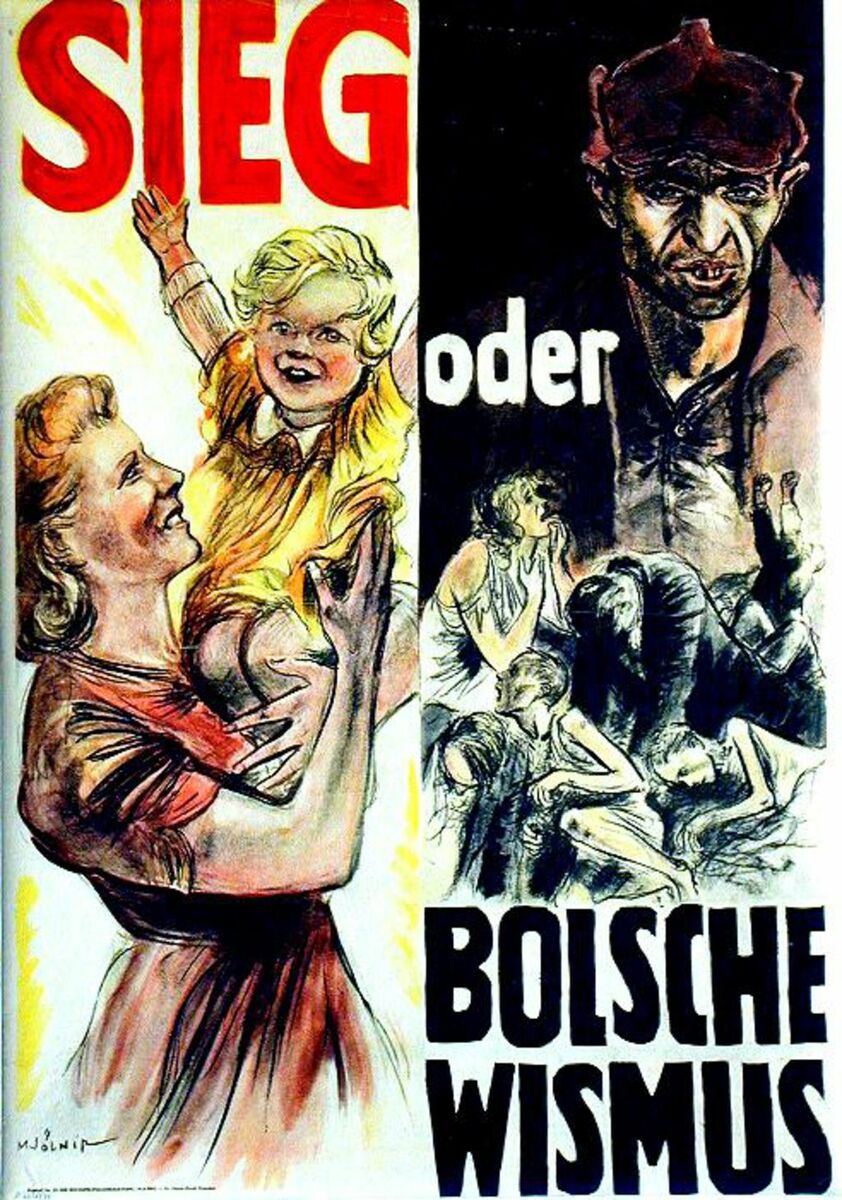Source

Source: Poster, 1943. Artist: Mjölnir. Printer: Dr. Güntz-Druck, Dresden. Deutsches Historisches Museum, Berlin. Inv.-Nr.: P 62/1779.
A great deal of the German propaganda effort on the home front relied on perpetuating a mentality of victory at all costs. When Goebbels announced a state of “total war” in his 1943 Sportpalast speech, this strategy shifted from boldly prophesizing a German victory toward a warning against defeat. Propaganda efforts from this point on sought to instill fear in the German population that defeat would by necessity mean total and absolute annihilation for the German nation. These tactics also claimed that a German loss would mean the ultimate victory of “international Jewry,” which would exact a terrible retribution on Germans for this war. In this image, civilians were presented with a stark vision of both options: one the one hand, victory meant peace, health, and a future for German families, while on the other, defeat would lead to Bolshevism and destruction, represented here by the “Slavic/Jewish menace” which brings death and despair.
The effects of this form of propaganda on general public attitudes has been explored by historians, who argue, first, that this distinct shift in message served as a clear inidicator to Germans that the tide of the war had turned against them. Second, the hint that Germany’s enemies—specifically Jews—would exact a terrible revenge on Germans if they won the war also suggests that average Germans had some knowledge of why that revenge would be exacted. In other words, understanding this message further suggests some knowledge of German war crimes among the general population.

Source: Poster, 1943. Artist: Mjölnir. Printer: Dr. Güntz-Druck, Dresden. Deutsches Historisches Museum, Berlin. Inv.-Nr.: P 62/1779.
© Deutsches Historisches Museum